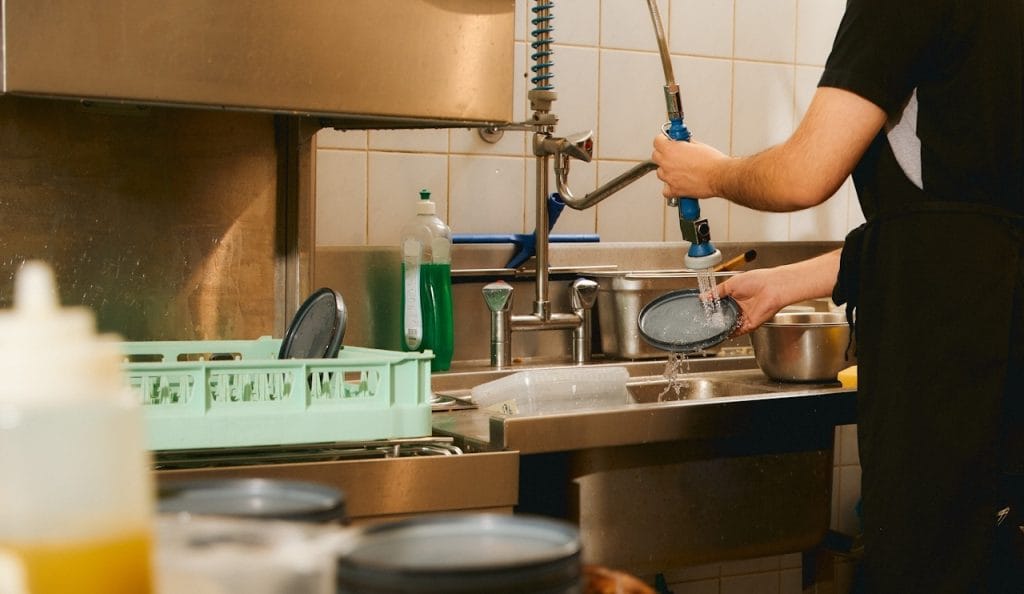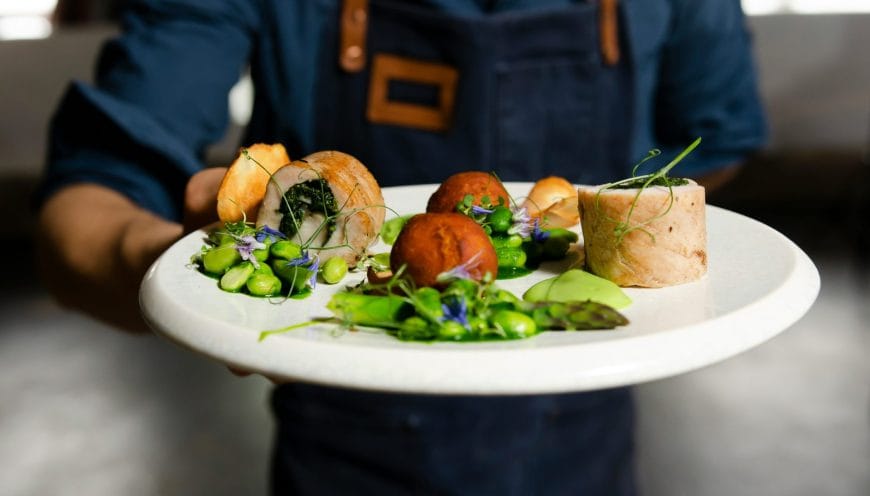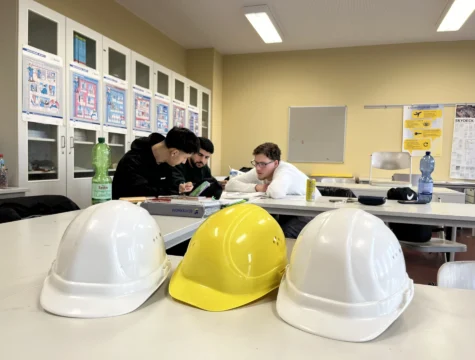Last year saw the conclusion of our 2-year project on food waste, a topic with huge environmental, social, and economic ramifications.
Working together with partners NEW STANDARD.STUDIO, Seminaris Hotel, and visitBerlin, we explored this topic in the context of hotel gastronomy, looking at how the circular economy and zero waste approaches can provide solutions.
Our training resources for use in the food service industry and project report are available for free. You can find instructions on how to access these below under the section ‘Our Project Approach.’
Why Reducing Food Waste is Crucial
Food waste plays a large and often overlooked role in driving climate change. 8–10% of anthropogenic greenhouse gas emissions are associated with food waste, yet many people remain unaware of the link between the two. In Germany the problem is significant. According to research published by the University of Stuttgart, the country generates a total of 12.7 million tonnes of food waste annually (as of 2019).
The financial implications of food waste and problems related to its disposal are some of the first things we might consider. However, the economic and environmental costs extend beyond wasted food itself. The production, transportation, and preparation of food are usually resource-intensive activities. As such, this systemic issue has far-reaching implications that link suppliers, chefs, customers, and others across the supply chain.
Sources of Food Waste and Current Initiatives
Households are the main source of foodwaste in Germany. In an effort to combat this, the government has aligned with the UN’s SDG 12.3 directive, which sets 2030 as a deadline for halving global food waste at retail and consumer levels. The Federal Ministry of Food and Agriculture’s National Strategy for Food Waste Reduction lays out ways in which the proposed targets could be met.
Although the main problem is a domestic one, the food service industry also creates huge volumes of waste. Food losses in hotels can occur due factors such as incorrect planning, logistics, biological damage, preparation mistakes, handling by guests, and waste management. Breakfast buffets, which can be found in many hotels, are usually one of the main sources of waste due to over-supply.
Berlin’s local government has said that waste management needs to be improved throughout the industry. While some larger operators, like hotels, may have strategies in place for managing food waste, smaller businesses, such as restaurants, often dispose of food waste incorrectly. This results in an estimated 30,000 tonnes of leftover food that is not separated from general waste each year. Working with restaurants in the Neukölln and Charlottenburg-Wilmersdorf districts, a government-led project to address the problem began in 2019 and has seen considerable success.

Circular and Zero Waste Approaches
Zero waste and the circular economy are two approaches that can address the issue of food waste and offer solutions.
The circular economy focuses on material flows from a systemic perspective. Resource flows include, for example, food and beverages, as well as their packaging and transportation. Other considerations include the associated resource consumption resulting from the transportation, cooling, and preparation of food and beverages. By looking at material flows from the perspective of the circular economy, we can understand how resources can be used more efficiently and transition away from linear ‘take, make, waste’ models.
Minimizing waste is an important part of a circular approach. Zero waste strategies try to avoid the creation of waste as much as possible. Operating a truly zero waste business is difficult, but there are clear economic and environmental benefits to avoiding the creation of food waste in the first place.
By avoiding most products that use packaging, working with seasonal ingredients, and offering a plant-based menu, Berlin restaurant FREA have made sustainability and zero waste core parts of their philosophy. Any remaining organic waste is composted in-house and given to their suppliers, allowing remaining nutrients to return to the soil.
Too Good to Go is a service that allows companies to offer unsold food products, often at a significant discount, to customers via their app. In many cases, the items may have ended up being thrown away despite still being edible. This generates additional sales for the company, offers low prices for consumers, and helps to avoid unnecessary food waste.

Our Project Approach
We decided to focus on hotel gastronomy, which sits at the intersection of this issue and tourism, an industry that often exerts considerable environmental pressures. Berlin’s gastronomy and tourism sectors employ over 65,000 people, but the latter has received little attention from the perspective of the circular economy. Despite the fact that the city attracts more than 14 million visitors each year, there is a lack of quality data about waste management strategies in the local tourism industry.
In our survey of Berlin kitchen staff, we found that the majority were unfamiliar with the concepts of zero waste or the circular economy. This further underscores the need for work in this area and the fact that few hotels are considering food waste when it comes to their sustainability strategies.
Phase one of our project consisted of research on zero waste and circular economy in hotel gastronomy and was presented in a report (in German) along with recommendations for action. See page 32-59 for detailed suggestions.
We identified three main steps that can be taken by hotels and other food service operators to reduce waste:
1. Implement ongoing waste monitoring
2. Improve guest areas and guest communication regarding food waste
3. Provide further training for kitchen and service staff
Phase two was conducted in collaboration with Seminaris Hotel to test these recommendations, identify challenges, and provide training in a real-world setting. Almost all of the participants in our pilot found that the training gave them the skills to approach food waste in a new way.
The training resources (also in German) are available for free via visitBerlin’s TourismusHub platform.
How to access the resources:
- Log in to TourismusHub Berlin
- Click on ‘Nachhaltigkeit & Resilienz’
- Click on ‘Kreisläufe in der Hotel-Gastronomie’
Additional resources, including checklists and other information for industry professionals, can be found here.
Featured image by Chris Abatzis for DEATH TO STOCK




